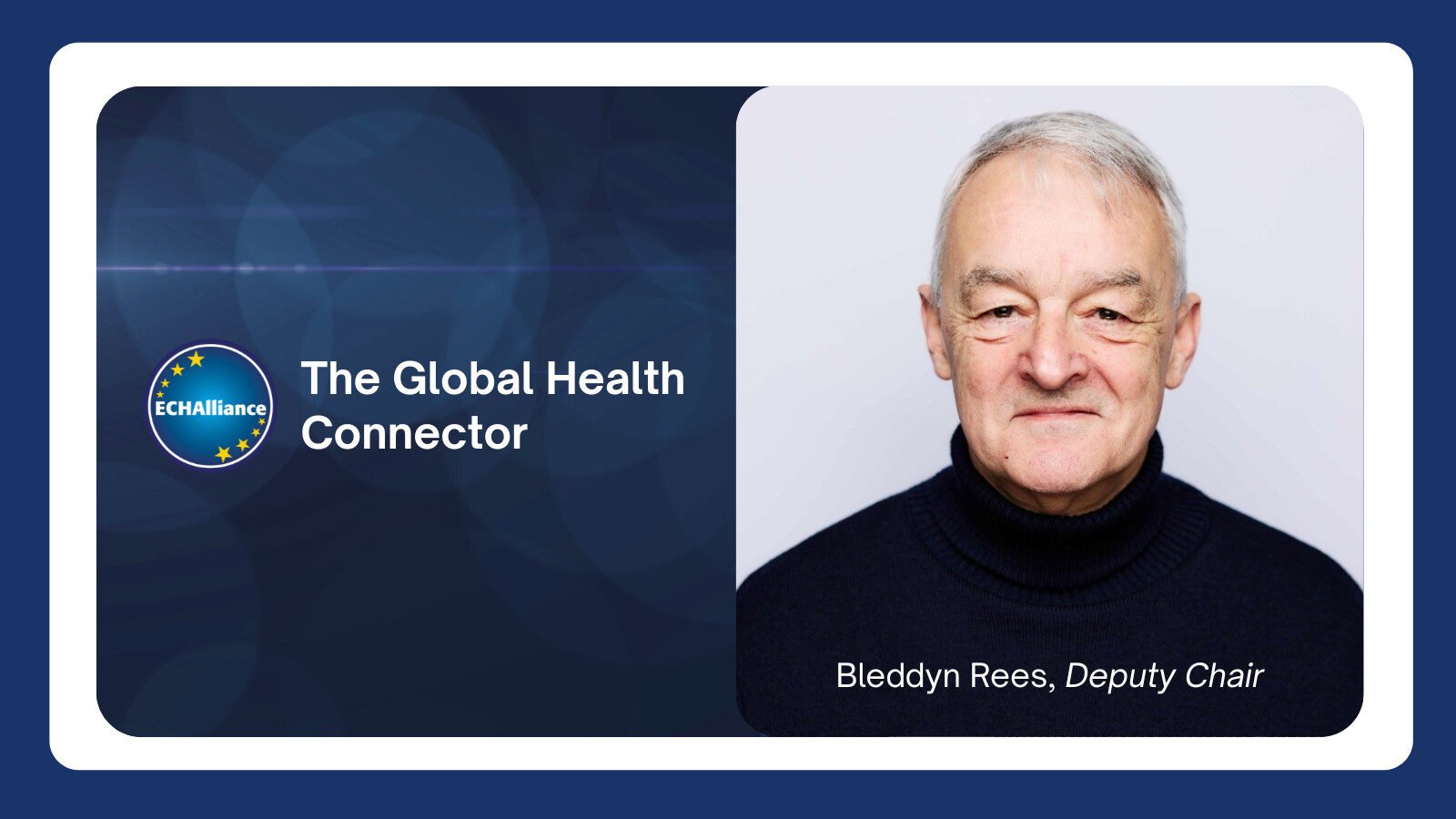At ECHAlliance – The Global Health Connector, we run flagship events in Africa and India, lead programmes at the UNGA Science Summit, and partner with major commercial conferences like HLTH, VIVE, HLTH Europe, and MWC Barcelona.
With deep insight into the opportunities and challenges in international health events, Bleddyn Rees shares his reflections below.
Why Conferences Matter: Benefits & Opportunities
Knowledge exchange
Conferences offer valuable opportunities to learn from experts across pharmaceuticals, technology, medtech, clinical practice, regulation, policy, and patient perspectives, to name a few. Bringing together private, public, and voluntary sectors fosters cross-sector collaboration.
Relationship building
Reconnecting with colleagues, meeting new contacts, and attending training or business meetings around conferences is extremely valuable. Tools like the HLTH App use AI to recommend contacts, help you meet people in advance, and promote yourself. HLTH also features Meet the Buyer, Investor Pitching, and Meet-ups.
Showcasing innovation
Conferences showcase exhibition floors with the latest or upcoming innovations, helping attendees discover new products, scout developments, and understand industry challenges.
The Flip Side: Common Challenges
High volume year-round
The number of conferences has grown exponentially – you could attend one every day somewhere in the world. This year, I’ve been to Barcelona, Belfast, London, Nashville, and Seville, and plan to attend UNGA in September, HLTH Las Vegas in October, and Ghent in December. Choosing the right ones for you and your organisation is increasingly difficult.
Substantial costs
Costs are significant for all organisations. International events add travel and accommodation expenses, and global economic pressures constrain spending even for large organisations. Travel bans are also back.
Planning and maximising impact
Time is scarce. Many conferences have multiple simultaneous tracks, so disciplined planning is essential. If your interests span several healthcare areas, you’ll miss some sessions you’d like to attend.
Inside the Experience: Looking Ahead
The nature of content is changing
Content ranges from specialised topics to broad “A to Z” themes in health and care. Fewer conferences use a “pay to speak” model, focusing more on quality topics and speakers. Still, beware of attractive titles that don’t match content. The era of “death by PowerPoint” is fading, with more sessions running without slides, though technical talks still benefit from visuals.
Greater audience engagement is needed
While panel moderation is generally strong, audiences often hold as much or more knowledge than panels, yet many sessions leave little room for genuine interaction. This is a missed opportunity. I’d like to see more live polling and feedback via apps.
Advancing inclusion and representation
Gender equality among speakers is improving but still needs attention. Public sector speakers often remain in broadcast mode, sharing little new information – though exceptions exist. Panels are most effective with real debate, not just agreement. Good preparation shows respect for the audience and the price they pay.
Face-to-face interactions remain most impactful
After the pandemic, doubts arose about in-person events. But face-to-face contact remains invaluable for building relationships and trust. Serendipity also plays a role – some of my best encounters happened by chance. Just last week, I met Professor Death – a puppet helping children talk about death – and the inspiring Indrani Pal-Chaudhari, who brought fresh energy to many conversations.
Long-term investment and personal favourite
The more you plan your conference calendar (and your goals while there), the more value and return on investment you will gain. And that investment is significant, in both time and money.
My favourite conference? Without a doubt, HLTH – a leading health innovation event. Since launching in 2018, they have consistently raised the bar, integrating patients, expanding content like oral health, and welcoming a full spectrum of health tech companies and investors. Rich Scarfo, HLTH President, brings industry insight and humanity to HLTH – and his contribution to healthcare is remarkable.
What are your reflections on health conferences?

